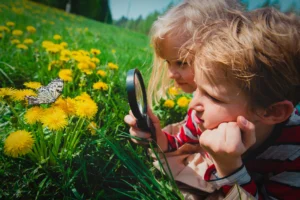As your child develops, you’ll start to hear such phrases as “Mine!” or “I want it!”
This is because your child has entered the preoperational stage of childhood development. According to Piaget’s cognitive development theory, one of this stage’s key features is egocentrism. Because of egocentrism, your child lacks the ability to empathize with others.
Teaching your child how to share is an important part of learning empathy and understanding others. Only then will your child become less egocentric and more socially and emotionally mature. Here are some ways to teach children how to share.
Why Is Sharing Important?
Learning how to share enables children to make friends, keep friends and cooperate with others. Sharing also teaches:- Fairness
- Compromise
- Taking turns
- Coping with disappointment
At What Age Should Children Learn How to Share?
Helping your child learn to share takes practice and patience. Strategies for teaching sharing are different for children at different age levels, but should be implemented in toddlerhood. To begin with, use the following techniques:- Model proper sharing behavior: Kids learn through observation. If they see you doing something, they are likely to copy that behavior. Share your snacks or toys during playtime. Be sure to point out how much you love sharing with them.
- Take turns: If you practice taking turns with a toy or possession, it makes sharing more concrete. This also provides your child with the words to solve problems, such as “May I have a turn?” and “I’m not done.”
- Praise your child: Reinforce positive sharing behavior by praising your children when they share with others.
- Teach the concepts of healthy ownership, helping your child learn to respect others’ things
- Encourage communal ownership of certain toys and games
- Explain why sharing is important and show them examples when you’re out in public
How Do You Know if Your Child Is a Good Sharer?
Sharing doesn’t happen overnight. If your child is developing into a good sharer, you might see your child:- Relating to and understanding the wishes and needs of their friends
- Sharing personal items willingly with the understanding they will be returned
- Playing cooperatively in groups of others


